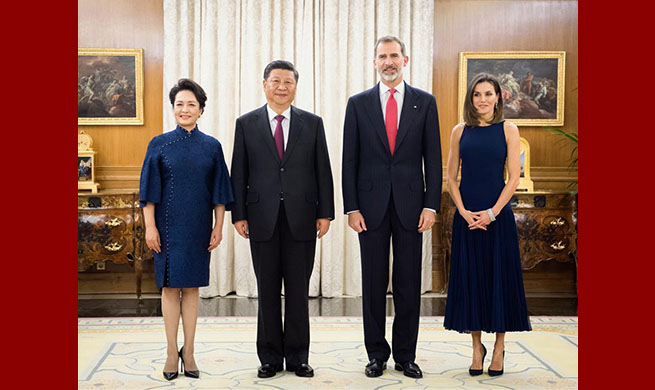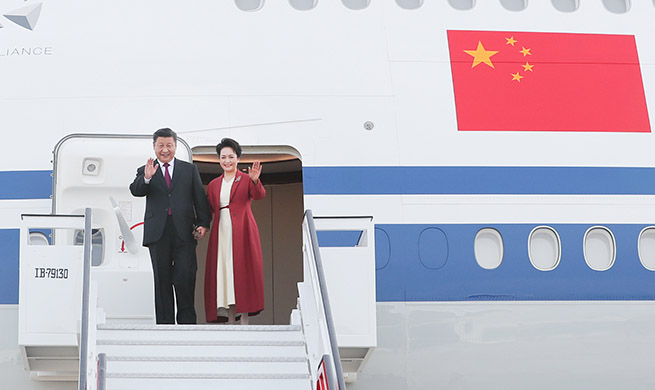HARARE, Nov. 28 (Xinhua) -- Zimbabwean President Emmerson Mnangagwa has agreed to have his salary and that of other senior government officials cut by 5 percent, finance minister Mthuli Ncube said Wednesday.
He said the move by the president would set a good example to the nation on the need to take austerity measures that will help revive the country's ailing economy.
"President Emmerson Mnangagwa is leading from the front on this issue of cost containment. He decided that he will cut his own salary by 5 percent, and the vice presidents are also doing the same. We as ministers and deputy ministers we did the same, permanents secretaries up to principal directors and head of parastatals, the state owned enterprises also did the same," said Ncube.
"So there is leadership from the front on this issue of cost containment and that sets the tone for the cost containment issue around the government wage bill," Ncube said at a post-budget press conference.
The salary cut would also be extended to senior executives of all public enterprises and state institutions such as universities and statutory commissions.
Ncube announced in his 2019 budget statement last Thursday that the salaries of the president, his deputies, ministers, and other senior government officials will be slashed by 5 percent with effect from January 2019 as part of broader measures by the government to reduce government expenditure which has resulted in unsustainable budget deficits that are choking the economy.
Wages in the civil service take up to 90 percent of Zimbabwe's national budget, leaving little for investment in critical public infrastructure such as roads, power stations and health facilities.
In the budget statement, Ncube said several austerity measures would be undertaken to bring down the civil service wage bill to sustainable levels to stimulate economic growth.
With effect from January 2019, government will weed out ghost workers in the civil service through introduction of bio-metric registration for all civil servants and will reduce the country's foreign missions, among other cost-cutting measures.
Bonus payments to civil servants for 2018 will also be based on basic rather than gross salaries.
Implementation of these measures, Ncube said, would yield significant annual savings, which would be channeled to critical areas of health, education and infrastructure.
He told the media that the 2019 budget tried to allocate more resources towards infrastructure development, noting that at least 1.3 billion U.S. dollars had been set aside in 2019, up from 800 million dollars in 2018.













